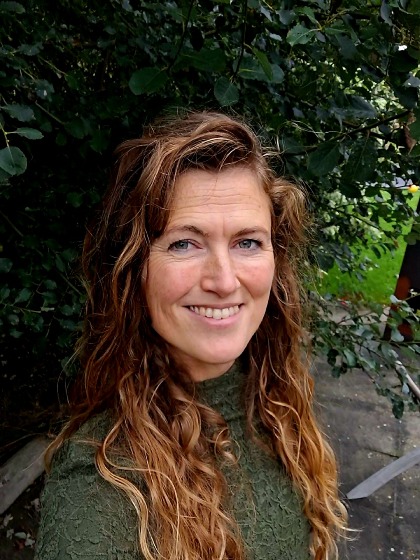prof. dr. N. (Namkje) Koudenburg

Speak Up
Speak Up is a 3-year Interreg North Sea Region project with 12 partners across 6 countries on effective citizen community engagement and participation.
In close collaboration with governmental partners that organize public participation panels on sustainability and other topics, we examine how to promote constructive dialogue among people with diverse viewpoints. In a ‘living lab’ we test the effects of different set-ups in terms of context, structure, and content of the conversation.
Read on the progress of this project here: https://www.interregnorthsea.eu/speak-up
The deviant that causes social change
Oftentimes, those who express deviant opinions are likely to face rejection by their peers. But this need not always be the case. In fact, some of the great social changes in history have been caused by those who expressed their deviant opinion. In this project, we investigate when deviants are likely to change group norms, for instance to become more environmentally friendly. We specifically focus on the group processes that underlie norm formation and norm maintenance.
Read more:
Koudenburg, N., & Jans, L. (2023). The group dynamics sparking social change: how group value in diversity predicts interactions with a deviant. Frontiers in Social Psychology, 1, 1240173.
Jans, L., Koudenburg, N., & Grosse, L. (2023). Cooking a pro-veg* n social identity: the influence of vegan cooking workshops on children’s pro-veg* n social identities, attitudes, and dietary intentions. Environmental Education Research, 1-16.
Jans, L., Koudenburg, N., Dillmann, J., Wichgers, L., Postmes, T., & den Hartigh, R. J. (2019). Dynamic reactions to opinion deviance: The role of social identity formation. Journal of Experimental Social Psychology, 84, 103803.
A polarized discourse
Polarization of opinions is a hot topic in research and society. Research shows that polarization becomes especially problematic when we believe opinion differences are entrenched in societal structures (for instance, when they relate to the democrat vs republican divide). We call this structural polarization (Koudenburg & Kashima, 2021). This project examines how perceptions of structural polarization affect the way we communicate with people who have a different opinion, and people who share our opinion. Are we still open for different viewpoints, do we express nuance, or are we more inclined to validate our own opinion? And may the dynamics in these conversations provide an opportunity to adjust our perceptions or would they further strengthen our perceptions of polarization?
Read more:
Koudenburg, N., & Kashima, Y. (2022). A polarized discourse: Effects of opinion differentiation and structural differentiation on communication. Personality and Social Psychology Bulletin, 48(7), 1068-1086.
Koudenburg, N., Greijdanus, H., & Scheepers, D. (2019). The polarizing effects of group discussion in a negative normative context: Integrating societal‐, group‐, and individual‐level factors. British Journal of Social Psychology, 58(1), 150-174.
Koudenburg, N., Kutlaca, M., & Kuppens, T. (2023). The experience and emergence of attitudinal consensus in conversations. European Journal of Social Psychology.
Koudenburg, N., Kiers, H. A., & Kashima, Y. (2021). A new opinion polarization index developed by integrating expert judgments. Frontiers in psychology, 12, 738258.
Manfredi, R., Guazzini, A., Roos, C. A., Postmes, T., & Koudenburg, N. (2020). Private-public opinion discrepancy. PloS one, 15(11), e0242148.
Online communication of disagreement
This project explores how people navigate the field of tension between expressing disagreement and maintaining social relationships in text-based online as compared to face-to-face discussions. (PhD-Student Carla Roos)
Roos, C. A., Postmes, T., & Koudenburg, N. (2020). The microdynamics of social regulation: Comparing the navigation of disagreements in text-based online and face-to-face discussions. Group Processes & Intergroup Relations, 23(6), 902-917.
Roos, C. A., Koudenburg, N., & Postmes, T. (2022). Dealing with disagreement: The depolarizing effects of everyday diplomatic skills face-to-face and online. new media & society, 24(9), 2153-2176.
In a new project "online pain or online gain?" we examine whether the exposure of disagreement may paradoxically render online communication a medium suited to sustainable cooperation. (PhD-Student Vera Weissenbacher)
This project is part of the transdisciplinary and interdisciplinary research programme SCOOP: Roadmaps to Resilient Societies (see: http://www.scoop-program.org).
